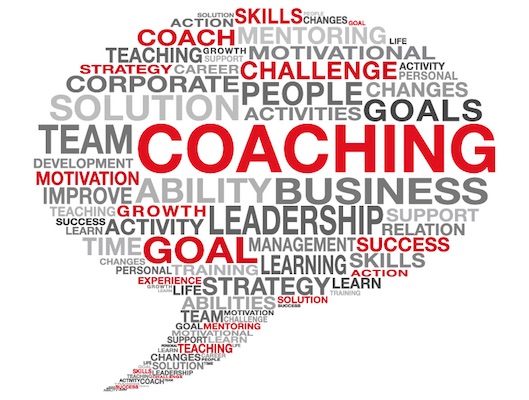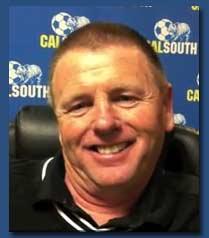The Importance, Role and Responsibility of Being a Coach
In a continuing series on the role of a youth soccer coach, with Steve Hoffman, Cal South Director of Coaching Education and Player Development, and Wayne Harrison, former Academy Director at Blackpool Football Club in England and Al Ain in the UAR and currently a coach with CV Manchester Soccer Club.

Part 1: The Role of Being a Youth Soccer Coach with Paul Caligiuri and Shannon MacMillan
Part 2: The Role of Being a Youth Soccer Coach with Alberto “AB” Bru, Colin Chesters and Christian Lavers
Part 3: The Role of Being a Youth Soccer Coach with Michael Duggan, Marc Gonzalez and Ron Pulvers
Diane Scavuzzo talks with top coaches about the important position of a coach. Youth soccer coaches have great influence over their players, and the best ones take that very seriously.
Diane Scavuzzo: What does being a coach mean to you?

Steve Hoffman: It is a massive responsibility! Firstly you’re a teacher and secondly you are one of the top three or four influential people in a child’s life; you are a major role model. Think about that. Children have three or four role models: their parents, school teachers and their coach.
Wayne Harrison: After playing soccer professionally, I knew looking back what I needed in order to be better as a player. I wanted to teach others what I felt I needed as a player to be successful.
It is important always to continue learning as a coach. You can never know everything and you must be open to new ideas and through this you continue to further educate and improve yourself.
Diane Scavuzzo: What is the importance of being a soccer coach?
Wayne Harrison: I think it is important that you teach young players the importance of the team. Players need to be encouraged to be unselfish in their play.
Also, as a coach, you cannot please everyone all of the time, and so players (and parents) can experience highs and lows in the process. This is a life learning experience where we learn that we cannot have everything we want all of the time. They need to be able to cope with the disappointments that come their way.
Steve Hoffman: I firmly believe that we need to create a classroom at our practice or training sessions where kids can learn the game of soccer and you can teach the skills needed to play in a fun way.
Each game is a test for our kids; sometimes they get it right and sometimes wrong. The great thing about being a coach is you can go back to your classroom and develop a lesson plan and try to correct what went wrong, both the technical and the tactical.
Long term, as a coach it is our job is to create a passion and desire so the kids and adults keep playing the beautiful game of soccer all their lives. This equals success.
Diane Scavuzzo: What is the responsibility of a coach?
Steve Hoffman: I believe it is to create a fun and safe environment for children to learn and play in. I strongly believe that when a child comes to soccer practice he/she should be challenged to think as much as play. Lines and laps do not teach anyone anything. In fact, running laps teaches our children to not like running, which is a 100% negative thing in soccer.
Winning and losing are less important than people think, and we should always elevate performance over the final score. If an individual performs well and a team performs well, the outcome of the games becomes much less important.
|
|
Wayne Harrison: Coaches are trusted people who have a massive responsibility – to their players, to the game and to their peers. I read somewhere that a coach (and a teacher, which is essentially what we are) is second only to a parent in how they can influence a child. When you think of all the time that we spend with them, I do believe that.
I take this responsibility seriously and try to pass on a positive attitude to every player I train. I try to add praise as much as I can to improve their self esteem. I don’t focus on mistakes; I focus on what they did well, and I think that is vitally important. Too many coaches focus on the negatives, which can destroy the confidence of the player and ruin the fun of the game.
Constructive criticism is the key, and it must be well-timed and specific to the age and gender of the player.
Diane Scavuzzo: Do you have any last thoughts about coaching?
Wayne Harrison: Just that I love my job, I love to educate and I love soccer. It is my life and second only to my family.
Steve Hoffman: I would love to see parents support the coaches and what they do. I know it’s hard sometimes I am a parent and I have 3 grandchildren playing club soccer. Sometimes you just want to blow off steam. But when you do that your child listens to the negative and often they lose respect for the coach.
So my take away is this: respect the game, the coaches, the officials and most importantly your opponents.







